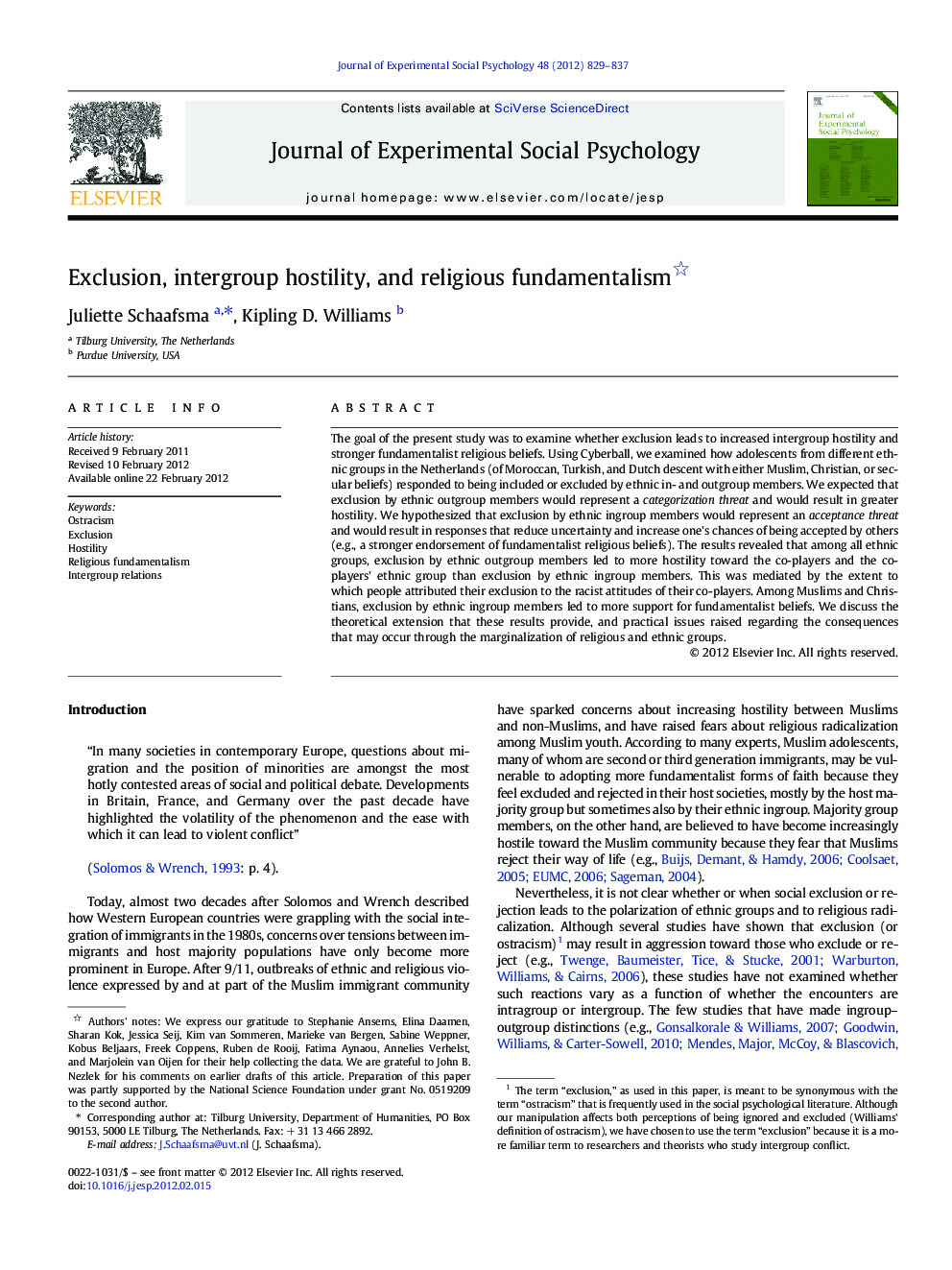| Article ID | Journal | Published Year | Pages | File Type |
|---|---|---|---|---|
| 948276 | Journal of Experimental Social Psychology | 2012 | 9 Pages |
The goal of the present study was to examine whether exclusion leads to increased intergroup hostility and stronger fundamentalist religious beliefs. Using Cyberball, we examined how adolescents from different ethnic groups in the Netherlands (of Moroccan, Turkish, and Dutch descent with either Muslim, Christian, or secular beliefs) responded to being included or excluded by ethnic in- and outgroup members. We expected that exclusion by ethnic outgroup members would represent a categorization threat and would result in greater hostility. We hypothesized that exclusion by ethnic ingroup members would represent an acceptance threat and would result in responses that reduce uncertainty and increase one's chances of being accepted by others (e.g., a stronger endorsement of fundamentalist religious beliefs). The results revealed that among all ethnic groups, exclusion by ethnic outgroup members led to more hostility toward the co-players and the co-players' ethnic group than exclusion by ethnic ingroup members. This was mediated by the extent to which people attributed their exclusion to the racist attitudes of their co-players. Among Muslims and Christians, exclusion by ethnic ingroup members led to more support for fundamentalist beliefs. We discuss the theoretical extension that these results provide, and practical issues raised regarding the consequences that may occur through the marginalization of religious and ethnic groups.
